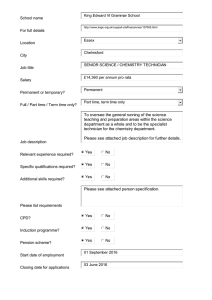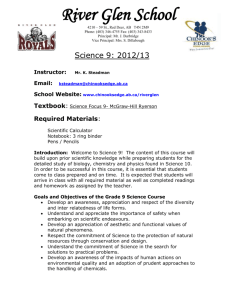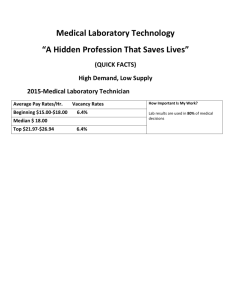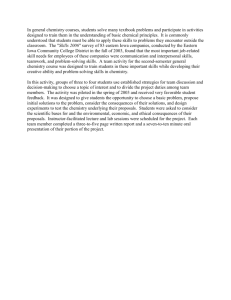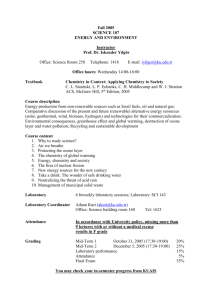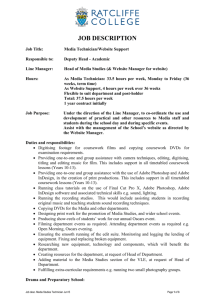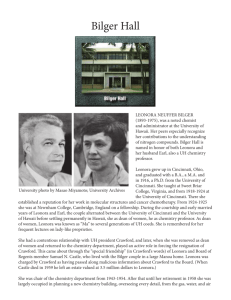Program-SLO
advertisement
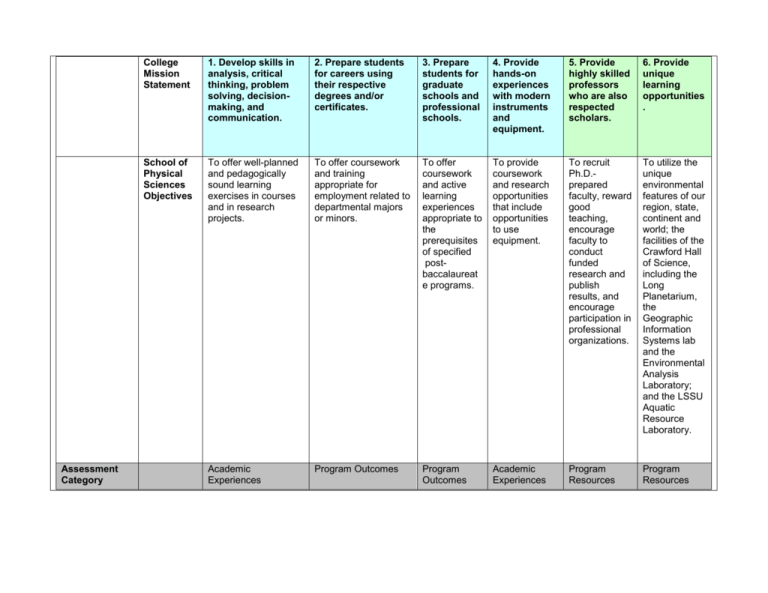
Assessment Category College Mission Statement 1. Develop skills in analysis, critical thinking, problem solving, decisionmaking, and communication. 2. Prepare students for careers using their respective degrees and/or certificates. 3. Prepare students for graduate schools and professional schools. 4. Provide hands-on experiences with modern instruments and equipment. 5. Provide highly skilled professors who are also respected scholars. 6. Provide unique learning opportunities . School of Physical Sciences Objectives To offer well-planned and pedagogically sound learning exercises in courses and in research projects. To offer coursework and training appropriate for employment related to departmental majors or minors. To offer coursework and active learning experiences appropriate to the prerequisites of specified postbaccalaureat e programs. To provide coursework and research opportunities that include opportunities to use equipment. To recruit Ph.D.prepared faculty, reward good teaching, encourage faculty to conduct funded research and publish results, and encourage participation in professional organizations. To utilize the unique environmental features of our region, state, continent and world; the facilities of the Crawford Hall of Science, including the Long Planetarium, the Geographic Information Systems lab and the Environmental Analysis Laboratory; and the LSSU Aquatic Resource Laboratory. Academic Experiences Program Outcomes Program Outcomes Academic Experiences Program Resources Program Resources Assessment Data Sets from Assessment Plan Course syllabi, course assessment documents, compiled Student Research/Projects Experience evaluations Course assessments, Student Exit Survey Student Exit Survey Compiled Instrument Usage logs and Annual Instrumentatio n Report annual faculty HLC report form Faculty survey data regarding use of unique learning opportunities Program-Bachelor of Science: Environmental Science Program Outcomes Upon completion of this program a student will be able to demonstrate . . . 1. Factual and theoretical knowledge of chemistry, biology, and environmental science 2. Crossdisciplinary laboratory knowledge and skills 3. Competence in the use of science instruments and computers 4. Communication skills 5. Information retrieval skills 6. safe laboratory practices Readiness for employment in business or industry as an environmental scientist, biological technician, physical science technician, polllution control speciist, laboratory chemist environmental specialist or environmental field technician. Readiness for graduate study in environmenta l science, environmenta l chemistry, environmenta l toxicology, biochemistry or other chemistry related fields. Experience and familiarity with full range of chemical instrumentatio n for environmental and chemical analysis and for environmental research The University Supports…… . An active and engaged faculty in chemistry and applied environmental applications of chemistry Resources for the maintenance and support of the program including the science labs of Crawford Hall and the Environmental Analysis Laboratory.
